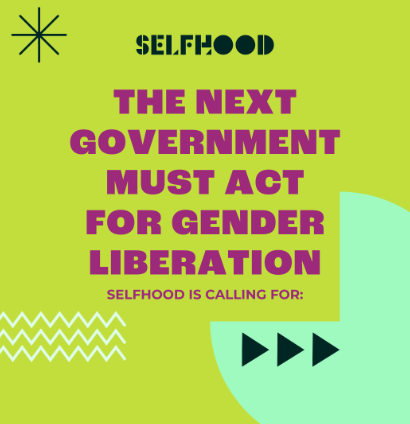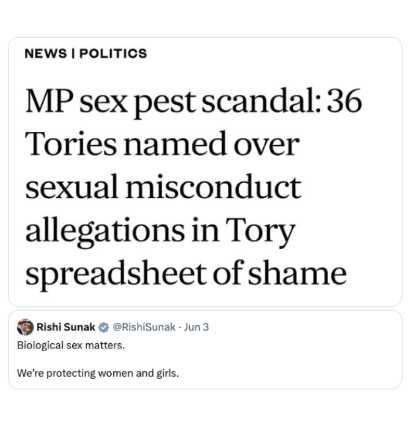The Manosphere: The Dark Rabbit Hole of Misogyny and Radicalisation

The manosphere is a sinister subculture of misogynistic groups online. It sounds like the seedy underbelly of the internet - but it’s almost impossible not to stumble across it online. The manosphere has spawned various extremist groups with interconnected ideologies that perpetuate hatred, discrimination, and misogyny. While this discourse proliferates online, the devastating consequences of manosphere ideology are already clear to see out in the real world - being associated with cases of domestic abuse, murders, suicide pacts and even mass killings in recent years. In this blog, we delve beneath the surface of the manosphere to explore the insidious ways in which it radicalises young men and promotes extreme violence against women.
Understanding the Manosphere
The term ‘manosphere’ is an umbrella term that shelters a multitude of interconnected misogynistic communities. These communities vary in the extremity of their beliefs and rhetoric, but they all share a common thread of anti-feminism, hostility towards women, and a desire to “restore” male dominance in society.
So who are the groups that make up the manosphere?
Involuntary Celibates (Incels)
Incels are often seen as the most extreme face of the manosphere, but it's crucial to recognise that their journey towards radicalization often starts with less extreme ideas. The term "incel" initially described individuals who were involuntary celibate due to shyness or social awkwardness. Over time, it has morphed into an online subculture of men who blame women for their inability to secure romantic or sexual partners. Their bitterness towards women gradually escalates into broader generalisations and, in the most extreme cases, pro-rape and mass violence discourse.
The path towards radicalization often begins with sharing stories of loneliness, social rejection, and experiences of feeling unattractive. The online incel community serves as a vicious echo chamber that’s almost as destructive to its own membership as it is to those they consider to blame, reinforcing these feelings and gradually amplifying the blame placed on women for their predicament.
Pick-Up Artists (PUAs)
Pick-Up Artists believe that men are entitled to sex and that women should be "sexually available" at all times. The PUA movement gained popularity through books like Neil Strauss's 'The Game' and focuses on manipulating women into sex. PUAs teach techniques like "negging," which involves giving backhanded compliments to undermine a woman's confidence.
The transition from PUAs to more extreme groups can be subtle. PUAs often start by discussing ways to improve one's dating life. This may appear innocuous at first, but it lays the foundation for much darker, even violently misogynistic beliefs. The normalisation of objectifying women and treating them as conquests can easily lead individuals down a dark path.
Men Going Their Own Way (MGTOW)
MGTOW is an anti-feminist, misogynistic online community advocating for men to separate themselves from women. They argue that feminism has made women dangerous to men, prompting a need for complete dissociation. MGTOW groups often view women as a threat to men's well-being and believe that male self-preservation requires distancing from women.
MGTOW may start with men venting their frustration about past relationships or expressing distrust in women. As these ideas are echoed and amplified within the community, they may become more radicalised, ultimately leading some to embrace even more extreme misogynistic beliefs.
Men's Rights Activists (MRAs)
While Men's Rights Activists (MRAs) differ in some ways from incels and MGTOW, they share a common anti-feminist stance. MRAs primarily focus on criticising gender equality, women's rights, and women's status in society. They argue that men are oppressed and disadvantaged by feminism.
MRAs tend to engage in debates about societal issues, but their resistance to feminism can sometimes spiral into an extreme belief that women's rights have eroded the status and power of men. This can lead to further radicalisation within the manosphere.
Misogynist Social Media Influencers
In recent years, public figureheads of the manosphere have emerged, dramatically raising the profile of hitherto potent but fringe extreme views on gender norms. The dramatic rise of hyper-masculine social media influencers, such as Andrew Tate for example, has exposed boys and men to the idea of violence against women is something they are biologically entitled to - a logical and natural consequence of their view that males are an inherently superior sex. Between April and August 2022, the #AndrewTate hashtag had over 12.7 billion views on TikTok. Tate was eventually banned from Tiktok and Instagram in August 2022, but his content is still inescapable on social media. Tate's rhetoric has been linked to an increase in teenagers mimicking his behaviour and spreading his views.
While some misogynist influencers, such as Tate, explicitly promote violence against women, others perpetuate their patriarchal worldview in more subtle ways. Jordan Peterson, for example, is often perceived as an intellectual with ‘objective’ views on gender inequality. Peterson is a Canadian psychologist and media commentator who began to receive widespread attention in the late 2010s for his views on cultural and political issues. He has argued that there is an ongoing "crisis of masculinity" and "backlash against masculinity" in which the "masculine spirit is under assault". He has said men without partners are likely to become violent, and that male violence is reduced in societies in which monogamy is a social norm.
The Slippery Slope of Radicalisation
To truly comprehend the dangers of the manosphere, we must look beyond its individual components and examine how these groups collectively contribute to radicalisation. Understanding the path towards radicalisation within the manosphere is vital.
Social media platforms have played a significant role in the proliferation of manosphere content. Research suggests that a radicalisation pipeline on YouTube flows through anti-Social Justice Warrior (Anti-SJW) content to the "Manosphere." The ease with which individuals can navigate from one topic to another, thanks to recommended videos and related content, makes this journey seamless. Algorithms that prioritise content based on engagement, such as likes, shares, and comments, often amplify misogynistic content. This content is provocative and elicits strong reactions, further fueling its visibility and reach. Consequently, users who may initially engage with milder content can easily be drawn into more extreme discussions.
Once people’s views have been shaped by social media content, they can easily access the vast underworld of incel forums and groups promoting misogyny and violence against women. Lonely boys and young men who are genuinely seeking connection may find solace in these online communities. When they find an online community that seems to “understand” them by virtue of shared experiences, they flock to it for a sense of belonging.
The ease of access to this kind of content is alarming. The internet provides a cloak of anonymity that emboldens individuals to explore these communities and engage in discussions they might never partake in offline. This anonymity also enables individuals to express and experiment with radical ideas without immediate social consequences.
Over time, the constant reinforcement of extremist beliefs within these echo chambers pushes individuals further down the path of radicalisation. What starts as an outlet for venting frustration can quickly escalate into full-fledged misogyny, including discussions of violence, harm, or even mass atrocities against women.
So what?
The manosphere is a breeding ground for extreme misogyny and gender-based violence. It may start with lonely individuals seeking a sense of belonging and understanding, but the consequences of their involvement in these online communities can be severe. We must teach boys and men how to be vigilant and take action to counteract the allure of radicalisation within the manosphere.
Recognising the interconnectedness of these communities and the progression from milder ideas to more extreme ones is essential. Social media platforms need to be held accountable for their role in promoting such content, and individuals must be educated on the dangers of the manosphere.
Ultimately, addressing this issue requires a collective effort from activists, policymakers, and society as a whole. Only by shining a light on the dark corners of the manosphere and actively working to combat its influence can we hope to dismantle the toxic culture that it represents.
Join us in this critical mission to fight back against misogynist extremism and build a brighter, more inclusive future.
Team Selfhood
Be notified when we add new articles
Popular blog posts
-

-

-

-
 The real-world manosphere 1 Dec 2023
The real-world manosphere 1 Dec 2023

